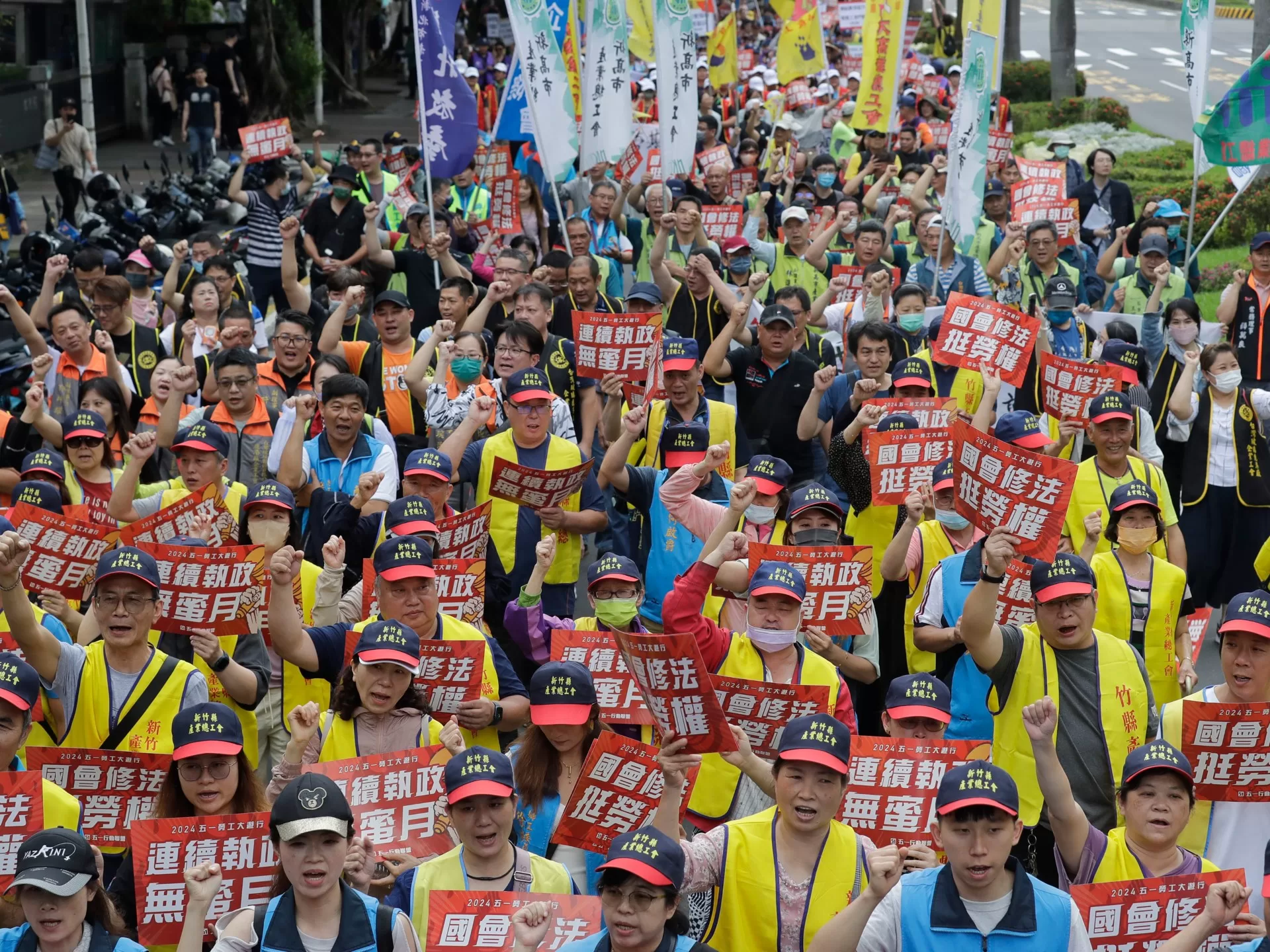Rallies took place in South Korea, Japan, Taiwan and the Philippines, among other countries, on Wednesday. The marchers protested rising prices and demanded greater labour rights.
Workers’ rights are celebrated on May Day across the globe, with events used to air general economic grievances and political demands.
In the South Korean capital Seoul, thousands of protesters sang, waved flags and shouted pro-labour slogans before marching through the centre. Organisers said the rally was primarily meant to step up criticism of what they call anti-labour policies pursued by the conservative government led by President Yoon Suk Yeol.
“In the past two years under the Yoon Suk Yeol government, the lives of our labourers have plunged into despair,” Yang Kyung-soo, leader of the Korean Confederation of Trade Unions said in a speech. “We can’t overlook the Yoon Suk Yeol government. We’ll bring them down from power for ourselves.”
Similar rallies were held in several other cities across South Korea. Police mobilised thousands of officers to maintain order, but there were no immediate reports of violence.
In Japan, more than 10,000 people gathered in downtown Tokyo to demand salary increases sufficient to offset price increases. Masako Obata, leader of the National Confederation of Trade Unions, said that dwindling wages have put many workers in Japan under severe living conditions and widened income disparities.
“On this May Day, we unite with our fellow workers around the world standing up for their rights,” she said, shouting “banzai!” or long life, to all workers.
In Taiwan, more than 1,000 representatives from more than 100 workers’ unions took to the streets in downtown Taipei demanding worker rights laws be amended.
Waving banners and shouting slogans, demonstrators marched for hours in the capital calling for the law to be revised to include higher wages, better working conditions and pension packages.
“Prices have been soaring, but wages have not,” Said Chiang Chien-hsing, head of the Taiwan Confederation of Trade Unions.
In the Philippine capital Manila, hundreds of workers and activists marched in the scorching summer heat to demand wage increases and job security amid soaring food and oil prices.
Riot police stopped the protesting workers from getting close to the presidential palace. Waving red flags and holding up posters that read: “We work to live, not to die” and “Lower prices, increase salaries,” the protesters chanted and listened to speeches about the difficulties faced by Filipino labourers.
Drivers of jeepneys, the city’s main mode of public transport, joined the rally as they ended a three-day strike. The operators of the highly decorated vehicles fear that a government modernisation programme could see their often ramshackle vehicles removed from the capital’s streets.
